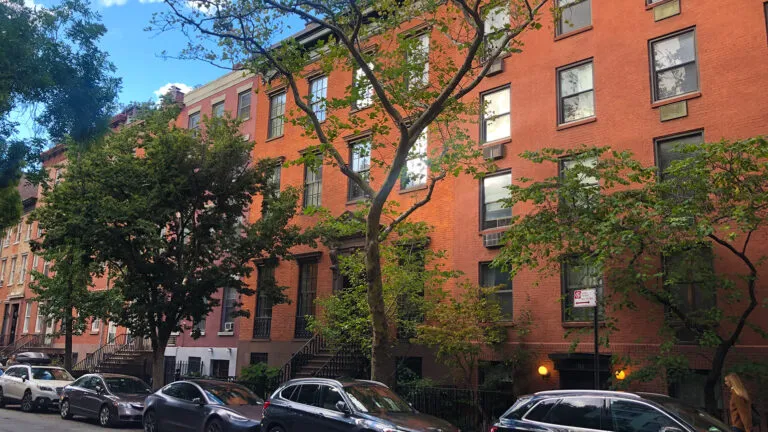Every year when Thanksgiving comes around, I remember gratefully a bit of wisdom handed to me when I was a young man. Having some stubborn difficulties in my life, I took them to an older and respected friend. “Why is it,” I complained, “that I can’t seem to cope with these problems?”
I remember his long, thoughtful glance. “Maybe,” he said, “it’s because you aren’t grateful enough.”
“Grateful?” I was astonished. “What are you talking about?”
“I’m talking,” he said, “about a law of living that you will discover someday. Focus on adversities, as you’re doing, and you’ll attract more of them. Be grateful for the privilege of living, and your life will grow increasingly bright. My advice to you is to be less of a complainer and more of a thanksgiver. Your troubles will become a lot more manageable, I promise you.”
Half a century of observing life and people has left me convinced that what my friend said that day is profoundly true: In some unfathomable way, the acknowledgment of past blessings seems to be the activator of blessings.
Over and over again I have seen the attitude of gratitude bring about extraordinary changes in people’s lives. I once knew a man—William Stidger—who suffered a shattering emotional breakdown. For months he was profoundly depressed, unable to work. No doctors seemed to be able to help him, but one day a friend challenged him to try what he called the therapy of thankfulness. “Many people have helped you in your life,” the friend said. “Pick any one of them—I dare you—and simply thank him.”
Pondering this, Bill Stidger recalled a schoolteacher, long retired, who years before had awakened in him an appreciation of poetry. He made himself write a short note, telling her what that act had meant to him. Soon a reply came back in the tremulous handwriting of an old lady. “When I read your letter,” it said, “my eyes were blinded with tears. Yours is the first letter of thanks I ever received from one of my students. I shall cherish it always.”
Bill Stidger wrote a note of appreciation to another person, and then another, until he had written over 500 such letters. By then, fully recovered, he was back at work. But he kept copies of those letters and the replies and in later years, whenever depression threatened him, he would reread some of them and let the therapy of thankfulness do its work.
Why is gratitude strengthening? Because it recharges the soul. Anyone who is grateful is focusing on what is good, and ultimately all good things come from God. This means that the thankful person is aligning himself with the most powerful force in the universe and is drawing strength from it.
Feeling thankful connects a person with a great spiritual dynamo, but before the power can begin to flow a second step must be taken: The gratitude you feel must be expressed. In a vivid scene in the New Testament, St. Luke tells how Christ once healed ten lepers. Of the ten, only one came back to express thanks. “But where are the nine?” asked Jesus. No one answered, but in that echoing silence every person present must have known that something was wrong, something was missing, some deep circuit was incomplete.
And so if at any time you feel a blast of appreciation or a sudden surge of gratitude, translate it into action. Write that note, make that phone call, send that small gift or flower. Act as if the impulse to act were a divine command.
When a group of people feel and express gratitude together, enormous power can come crashing through. A number of years ago Nikita Khrushchev, the formidable premier of the Soviet Union, visited this country. The mayor of New York gave a luncheon for him, and I was invited to attend. At Khrushchev’s entrance, the Soviet national anthem was played, and we all stood respectfully. We continued to stand as the orchestra played “The Star-Spangled Banner.” A bar or two went by; then somewhere in the vast crowd a little man started to sing the words. He had a thin, quavering voice, he sounded lonely and a bit foolish, but he continued to sing. Then another voice picked it up, and another, until suddenly with a great roar of sound everyone was singing. All the love, all the pride, all the gratitude we felt for this wonderful land came pouring through.
It is this healing power that we Americans seek and sense on Thanksgiving Day, something so beneficent that it’s like the touch of a great kindly hand on the fevered brow of the nation. You can’t measure or analyze it. It’s simply there, invisible, intangible, a glow of gratitude, an aura of thankfulness that strengthens us all, and strengthens our nation, too, because when you focus on the best in something, you want to preserve and defend it.
How can we maintain this attitude not just on Thanksgiving but on every other day? One way is to try to be more aware of the mystery and magic of life.
A simple device that I often use to heighten my sense of appreciation is one that I call my last-time technique. “Suppose,” I say to myself when I’m doing something particularly enjoyable or worthwhile, “suppose this were the last time you could see a sunset, or hear great music, or smell lilac or honeysuckle, or touch a loved one’s hand.” Just a mental trick, of course. But it seems to work.
It’s a step that each of us needs to take, because it completes a circle based on a profound yet simple spiritual law, the law that my wise old friend tried to teach me so many years ago, the law that says you will find what you look for.
In this life, if you steadfastly affirm goodness, goodness will be there. If you affirm love, you will find it. And if you affirm thankfulness, blessings will flow.
Read more stories about positive thinking.
Download your FREE positive thinking ebook!





